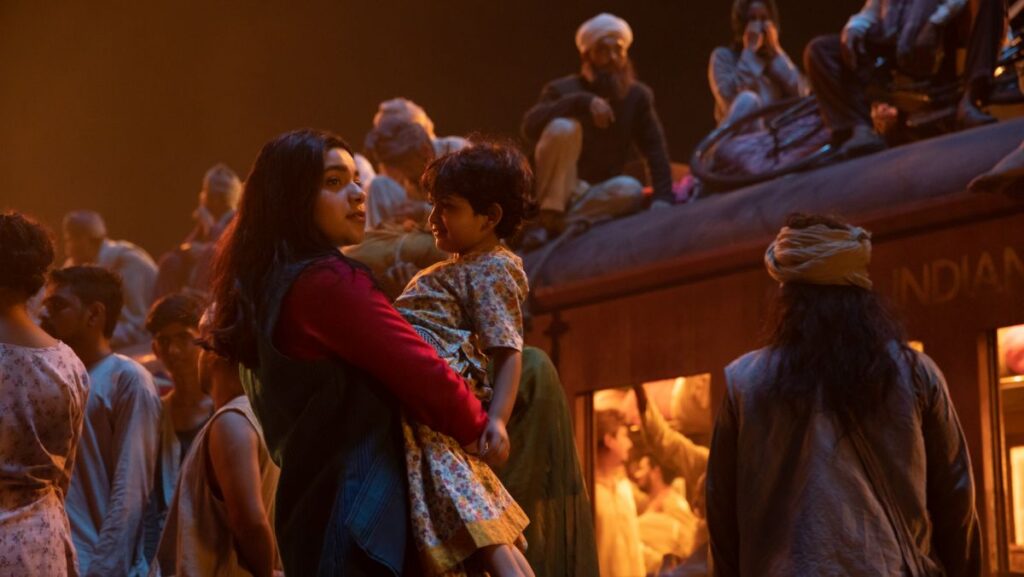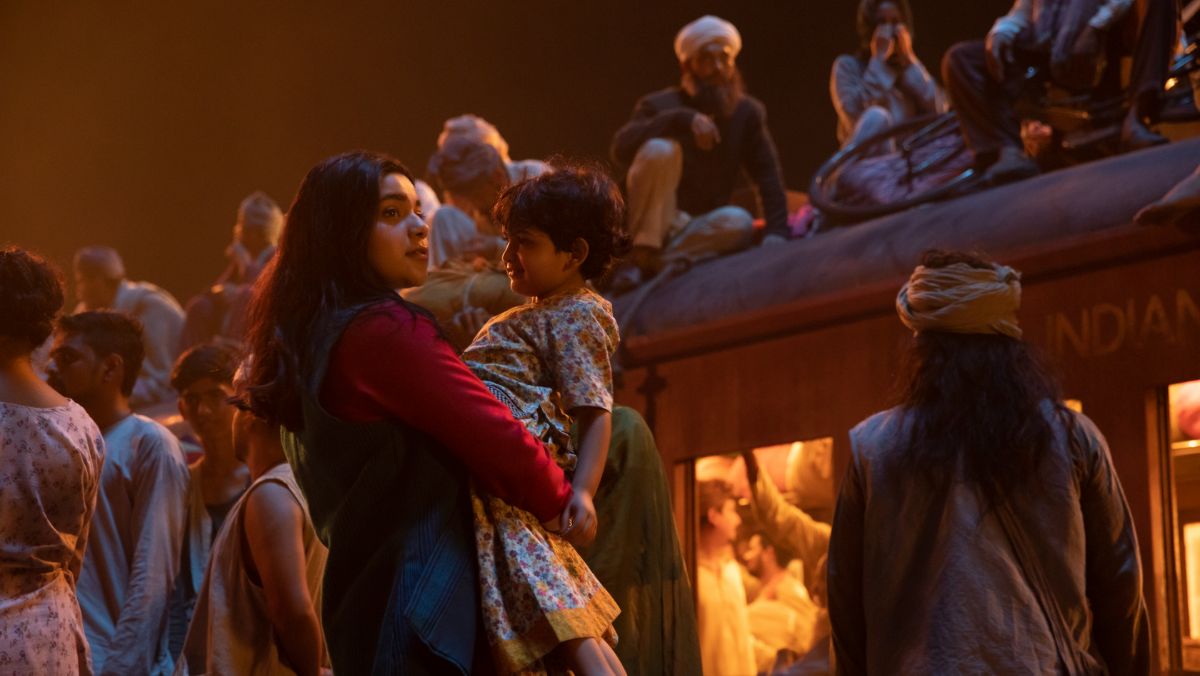
The Barbed Wires
While the desire to wake up to an independent nation was high among the people, the great historical event of Indian independence was a double-edged sword. After almost 300 years of ruling the subcontinent and plundering its riches, the British lacked the resources needed to effectively colonize India post-World War II. Consequently, the colonizers embarked on a hasty and clumsy exit from India.
The British Raj was finally dissolved in August 1947, bestowing the much-awaited independence on the Indian subcontinent. Unfortunately, this freedom came at the cost of the great divide, resulting in two independent dominions in South Asia: India and Pakistan. However, the borders between these two countries were drawn not necessarily based on geography, but on religion and sectarianism. As a result, India became a Hindu-majority state while Pakistan was home to a Muslim majority. What resulted was blatant religious demarcations and confusion over the appropriateness of the different regions’ independence. Hindus were expected to settle in India, whereas Muslims were to in Pakistan.
Uprooting and Displacement
Following this, history experienced one of the largest migrations, where millions of Muslims had to move to West and East Pakistan (now Bangladesh) while the Hindus and Sikhs headed in the opposite direction. The calamity was even more severe for the thousands of people who never made it. The Indian subcontinent broke with cries of angst and bloodbath, facing one of the most horrifying outbreaks of communal violence. This mutual sectarian genocide was both unapprehended and unprecedented.
It is nearly impossible to fathom the trauma of such an abrupt and forceful displacement, and even more difficult for the survivors to stomach or recollect the incidents. Multiple testimonies of that incident depict the ubiquitous bloodshed, irreparable psychological damage, and the traumatic loss of home, neighbourhood, and family.
The event of Partition has been a sensitive issue for both India and Pakistan and has been chronicled time and again in various art forms. However, outside the realm of South Asian discourse, Western pop culture has seldom been successful in doing justice to Partition narratives. Works of authors like Salman Rushdie or Yasmin Khan and media depictions like Gandhi (1982) and a Doctor Who episode (2018) attempted to throw light on the plights of Partition. (Pahwa, 2022). Unfortunately, these endeavors failed to rightly capture the mania of the millions of displaced people and were at best half-hearted.
MCU’s venture into Partition narratives
Though not bereft of criticisms, one of Marvel Cinematic Universe’s (MCU) latest releases, Ms. Marvel (2022) can be applauded for its initiative to offer a nuanced and realistic account of Partition. It is commendable how the show explores a historical subject that is seldom known to Western audiences even today: the agonies caused by the 1947 India-Pakistan Partition and its lasting effects.
The fifth episode of Ms. Marvel’s “Time and Again” explores the controversial subject of Partition and opens with images from early 1940s India. It used voice narration to highlight some of the nation’s freedom fighters and provided a brief explanation of the colonial conditions that contributed to the Partition. It places the audience (together with the protagonist, Kamala Khan) during this critical period in the histories of Pakistan and India.
The show then goes back to 1942, where we witness the great-grandmother of Kamala, Aisha. She is seen meeting her prospective partner, Hasan, at his ancestral home. The narrative also refers to a crucial event that happened during this period, most likely the beginning of the Quit India movement. (Pahwa, 2022). Kamala’s, great-grandfather, Hasan, encouraged people to struggle for independence as Gandhi urged them to. However, as time passes, Hasan grows resentful of his isolation because he is a Muslim. As the promise of freedom is imminent, Islamophobic antagonism grows, forcing him to relocate to Pakistan with his family.
As they prepared to cross borders, Aisha had a fateful encounter with Najma, with whom she shared her past as a super-powered resident of the Multiverse. Known as Clandestines, these people were sent to a powerless exile which Najma desired to break with the help of Aisha. However, the latter chose her family over everything and sneaked off to the train station to board the train to Karachi. Aisha’s hopes to be with her husband and daughter Sana were shattered when she was murdered by Najma. (Ahmad, 2022).
Selecting Karachi as the migratory location was also significant. It was one of the primary migrations in the new dominion of Pakistan, apart from being its largest city at that time. Flocks of Indian Muslims ran to join long-term Karachi locals who, despite sharing faith and beliefs, were not necessarily compassionate to their immigrant neighbours.
In the course of the episode, we finally witness the popular scene when Sana traced the “trail of stars” to her father and boarded the final train that headed to Karachi. (Ahmad, 2022). As their houses were burning and they were threatened with brutality, partition trains were overflowing with occupants, eager to leave for a safer location. When Aisha is dying, Sana becomes stranded in the confusion of the frantic crowd. Kamala helps Sana find her way back to her father by creating a chain of stars, just like in the narrative. It’s a heartbreaking scene that demonstrates how countless people perished during the Partition.
Ms Marvel depicts the tragedies of Partition using the stories of Aisha, Hasan and Sana. Unfortunately, not everyone was as lucky as Sana to find their missing relatives. Furthermore, by concentrating on one family, audiences can grasp how the pain of Partition continues to exist and influence the common person.
For Sana, the trauma of the Partition is revealed in her art and in the way she becomes fixated on the mysticism in her family, particularly Aisha’s bangle. It also manifests in her lack of emotional closeness to her daughter Muneeba (Kamala’s mother). Muneeba was forced to leave her house because of this but in less dire conditions than her mother. Muneeba also moved to a new location, leaving behind a lot. Kamala must discover the history of Aisha and how it affected her family’s course through her connection with the bangle. Kamala’s household illustrates what many other families have gone through.
Conclusion
It is remarkable how vividly the show portrays the agony of the Partition: the events that compel an already settled family to abandon their ancestral home, and the confusion of navigating a mass exodus. It also points to the speed with which violence spread, the loss of lives, tearing apart of families and friends.
Throughout the show, Ms Marvel does a pretty good job of displaying this pain which still bothers Kamala’s family. This is often highlighted in her mother’s disapproval of Aisha and her magic. What is an even more intricate depiction, is the question of identity and belongingness manifested in the continuous search for “home” in the US or Pakistan; the significance given to seemingly little artefacts linked with the turbulent past; and how all these feelings of loss may still emerge in an awful, violent tragedy.
It all adds up to a complicated, multifaceted, and frequently unpleasant issue that is difficult to properly put out and deconstruct. Nonetheless, Ms Marvel’s inaugural season is by far the best effort at it in the Western culture.
References:
Pahwa, N. (2022, July 13). How Ms. Marvel Took On One of History’s Darkest Episodes. Slate Magazine. https://slate.com/culture/2022/07/ms-marvel-finale-disney-india-pakistan-partition.html
Ahmad, M. (2022b, July 11). Ms Marvel Powerfully Portrays the Pain of Partition – Nerdist. Nerdist. https://nerdist.com/article/ms-marvel-partition-history-episode-five-real-life-event-mcu/
***
Ayushi Dutta has a Master’s in Sociology from Jadavpur University, Calcutta, India. She is an avid reader and harbours a strong passion for research. Her preferred areas of work are gender and sexuality, media studies and migration.
